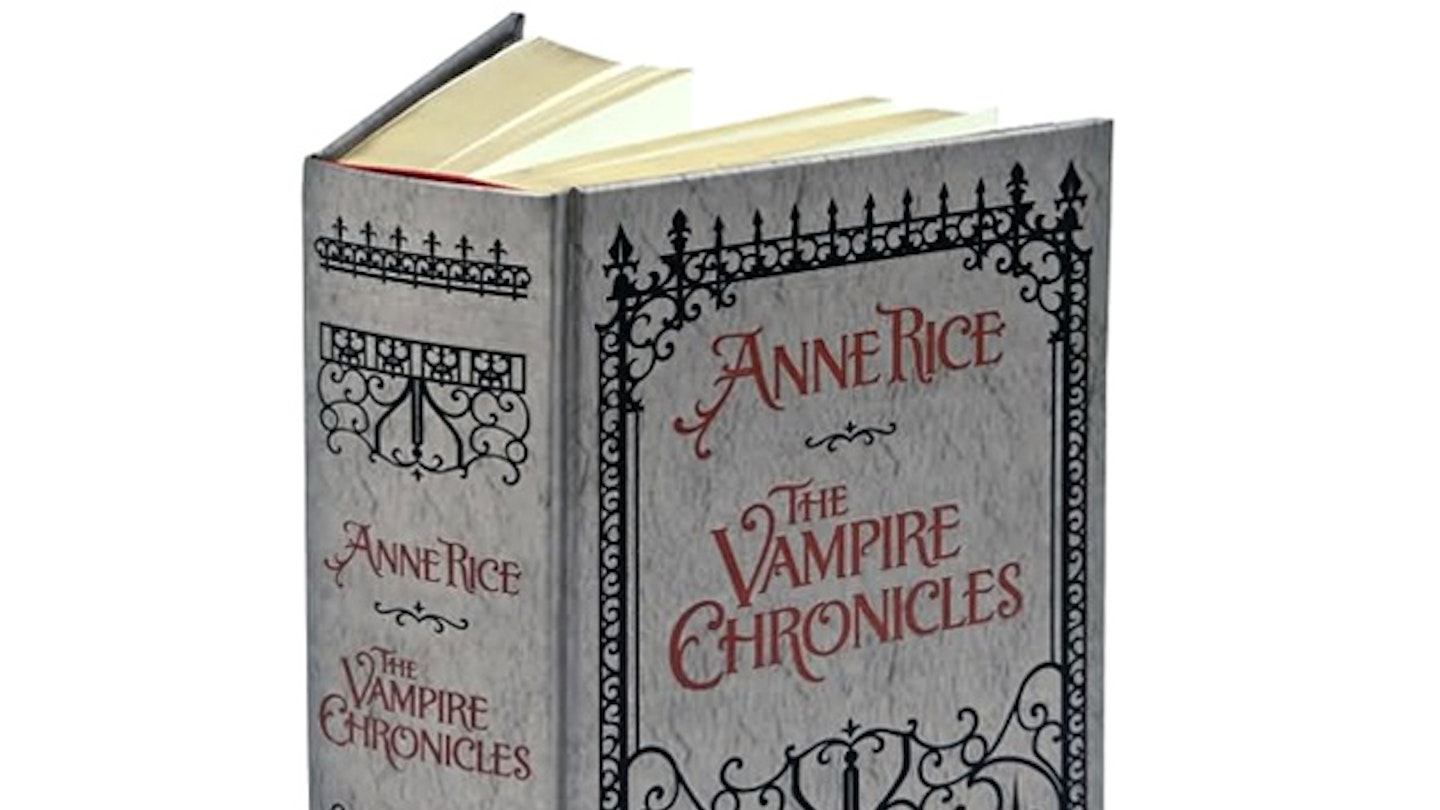What a fuss. When, after a full 17 years in development hell, Anne Rice's bestselling novel Interview With The Vampire finally made it to casting, its eccentric author threw a very public hissy fit. She was happy with director Neil Jordan, who had done lavish, wonders with The Company Of Wolves, she didn't murmur over pretty Brad Pitt as the woeful Louis, but when it came to her beloved vampire Lestat in the shape of beaming flyboy Tom Cruise she went ballistic. "He is no more my vampire Lestat than Edward G. Robinson is Rhett Butler," she-ranted. But to no avail.
Jordan remained unmoved and over a troubled five month shoot (original interviewer River Phoenix tragically died and Christian Slater stepped in) took Interview to the screen. And, famously, when Anne Rice finally saw the movie she, very publicly, recanted. Cruise, she decided, was brilliant. Mind you, apologies were not forthcoming. Written in 1976, shortly after Rice's five year old daughter had died of leukemia (which fuelled the book's lament) and published to rapturous reviews, Interview was a vampire novel with a difference. It was concerned with the life of vampires rather than the deleterious effect they may have on mortals. A rambling, erotic story of bloodsuckers freed from mortality but tied to the dark night, it spawned a series of sequels and prequels (collectively the Vampire Chronicles) centred on the flamboyant, bitchy, aristocratic carnality of Lestat, villain and patriarch of the saga.
Hence its format is less linear than episodic — we traverse 200 years under the cover of night - biting at the significant moments in the grim half-life of Louis De Pointe Du Lac and his turbulent relationship with Lestat and the film's eeriest character little Claudia (Dunst). She, the companion Lestat creates for his tormented protege, is trapped forever in the body of a 12-year-old, as she develops mentally and sexually her desires transform into a homicidal rage. A disconcerting feature in a small girl.
Louis (played with stilted misery by an out-of-sorts Pitt, who hated every minute of it) is a vampire clinging desperately to his humanity, resisting Lestat's all embracing attitude toward the necessary evils of their eternal existence. Killing is what they do, what they are. It is their only fulfilment and the only thing that brings them peace of mind (Louis prefers to pick off rats for blood). The film, as is common in vampire movies of recent years, is obsessed with detailing the lives and rituals of the night-dwellers. As with Near Dark (1987), the clutter of religious artifacts and garlic cloves have no effect. Louis has to contend with the fact he can never see another sunrise, or the true blue of the Mediterranean. When he and Claudia finally escape the clutches of Lestat, they head to Europe. Here we see the true scope of vampire society when they happen upon a troupe of bitter, corrupted vampires at the Theatre Des Vampires in Paris, all of them guided by the ancient cynicism of Armand (Banderas).
Rice's material and Jordan's fairly faithful take on it seethes with metaphorical significance. Its homoeroticism is unavoidable (despite rumours that Cruise demanded it to be toned down). The relationships between Louis and Lestat and then, more overtly, Armand, are rife with erotic undercurrents. It all, of course, registers as a reference to Aids, but Jordan always saw the movie in broader terms — a study of loneliness and the search for companionship and meaning, something universal.
Of just as much interest is the movie's lavish decor. With no detail unstinted on, it is draped in magnificent period detail (by Dante Ferreti) and shot with a mix of sickly and shadowy gloom (by Philippe Rousselot), lit by the glittering flicker of candlelight. Their work is stunningly atmospheric, especially in the Paris sequences, creating the impression of decadence long soured and a pervading aura of decay. The ultimate price of their vampiric immortality is that which Lestat rails against the most — insignificance. As flawed as the rhythms of Jordan's movie sometimes are, he has created a unique horror experience: the existential vampire movie.
